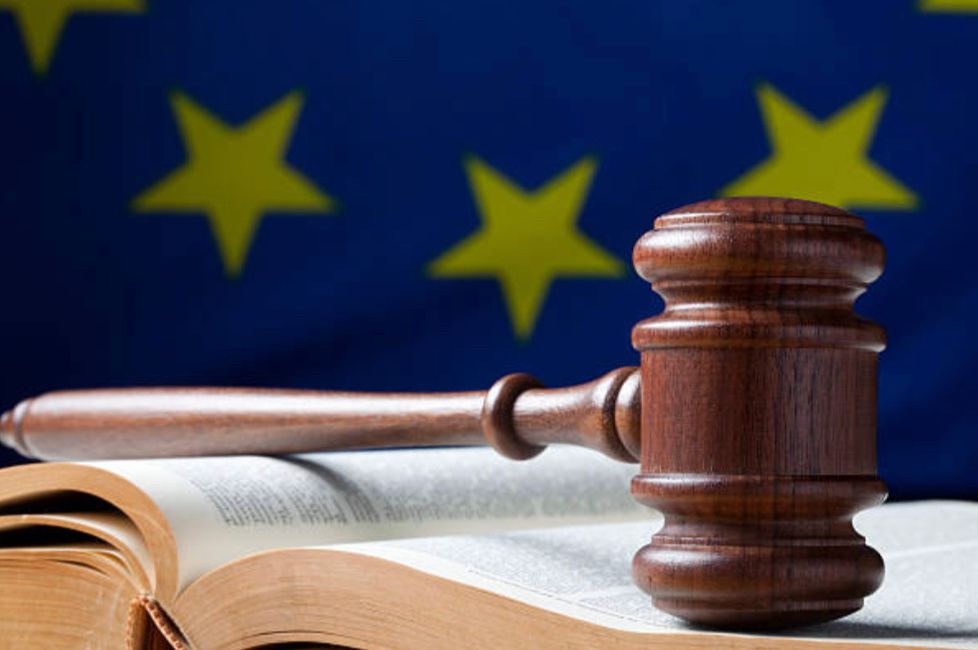The EPPO: Vanguard in the Battle against Cross-Border Financial Fraud and Pillar of Judicial Europeanisation
22 November 2023 /
Clara Vecino 3 min

In the ever dynamic scenario of the European Union, the creation of the European Public Prosecutor’s Office (EPPO) emerges as a transcendental milestone, marking a game changer in the fight against cross-border financial fraud. This body, charged with investigating and prosecuting crimes that transcend national borders, not only represents a breakthrough in prosecution, but also stands as a fundamental pillar in the process of Europeanisation.
A Unified Approach to a Transnational Problem
The establishment of the EPPO in Luxemburg signifies a crucial advancement in the European Union’s battle against financial fraud, particularly in light of its inherently transnational nature. The intricate web of international financial transactions has long been exploited by financial criminals, creating a formidable challenge for individual member states to address and prosecute such crimes effectively. The EPPO addresses this pressing issue by introducing a unified and collaborative approach to investigating and prosecuting financial crimes. With its jurisdiction spanning multiple EU member states, it transcends traditional borders, providing a much-needed framework to confront the complexities of transnational financial fraud. This departure from the reliance on individual member states underscores the recognition that a more coordinated approach is essential for the success in the ongoing fight against financial wrongdoing.
A key strength of the EPPO lies in its ability to coordinate investigations seamlessly across borders. The office serves as a central hub for pooling resources, expertise, and information from the European Delegated Prosecutors appointed by each participating member state. This collaborative framework enhances the efficiency of investigations by streamlining the process of gathering evidence and pursuing perpetrators. By leveraging the combined knowledge and skills of prosecutors from various jurisdictions, the EPPO aims to overcome the hurdles that often impede the effective prosecution of transnational financial crimes.
In addition to its investigatory and prosecutorial functions, the EPPO also plays a role in fostering greater legal harmonisation among participating member states. The establishment of common standards and practices for addressing financial crimes enhances the overall effectiveness of the EU’s legal framework in this domain. This harmonisation is crucial for closing existing loopholes and ensuring that financial criminals face a unified and robust legal system, regardless of where their activities cross borders within the EU.
As the EPPO begins to operate and assert its influence, its success will serve as a model for addressing other transnational challenges within the EU. By promoting cooperation, streamlining processes, and fostering legal harmonisation, the EPPO represents a significant milestone in the ongoing effort to strengthen the European Union’s ability to combat financial crimes on a unified front.
The significance of the EPPO lies in its ability to foster a unified approach to combating transnational financial fraud, a challenge that has long plagued individual EU member states. A key aspect of this unified approach is the harmonisation of legal procedures that the EU wants to carry on with, which can be linked to the process of Europeanisation.
Europeanisation of the EPPO and its challenges
Europeanisation refers to the process by which European countries adopt common standards, policies and values, seeking greater integration and cooperation. In the context of the creation of the EPPO, Europeanisation would relate to the harmonisation of legal systems and collaboration in the prosecution of cross-border crime. In this case, it implies the adoption of common legal standards and the creation of a unified European legal framework to deal with criminality on a transnational level. Additionally, the EPPO’s existence fosters mutual trust between the judicial systems of the member states, which is essential for successful judicial cooperation in the EU.
However, there are two fundamental challenges that arise in the process of Europeanisation, specifically in relation to the diversity of legal systems and the implications for national sovereignty.
First, the reference to the diversity of legal systems and legal traditions among the member states poses a significant challenge on the road to deeper Europeanisation in the judicial field. Each country of the European Union has its own legal system rooted in its history, culture and legal traditions. Harmonising these systems to build a coherent European judicial framework is a monumental task. Diversity can lead to different interpretations and approaches to similar legal problems, which complicates the creation of a homogenous system that functions efficiently and fairly in all member states.
Secondly, the creation of the EPPO raises questions about national sovereignty highlights an essential dilemma. National sovereignty implies the autonomy of a state to make internal decisions, including those related to its legal and judicial system. The creation of supranational institutions, such as the European Public Prosecutor’s Office, implies handing over some of the sovereignty in the legal sphere. This raises important questions about the extent to which member states are willing to cede their authority and allow a European entity to influence the prosecution and trial of crimes, even if they are related to common financial interests.
In conclusion, Europeanisation and the creation of the European Public Prosecutor’s Office represent an important step towards building transnational justice in the European Union. While the diversity of legal systems and concerns about national sovereignty pose challenges, the need to effectively address financial crimes affecting the EU has led to the creation of this supranational institution. The balance between European cooperation and respect for national autonomy will be crucial for the continued success of this process and for building a stronger and more united Europe in the judicial field.
Clara Vecino is a master student at the Institute of European Studies.
(Edited by Luka Krauss)
